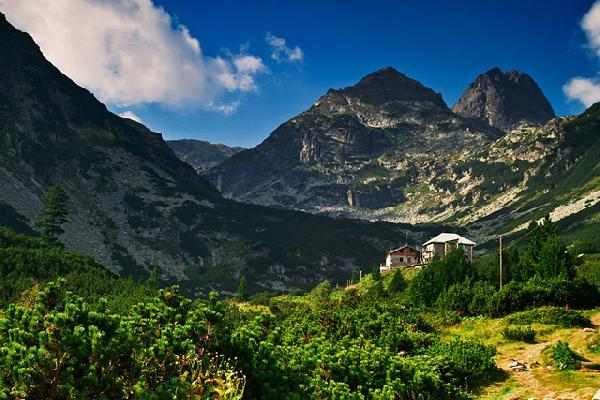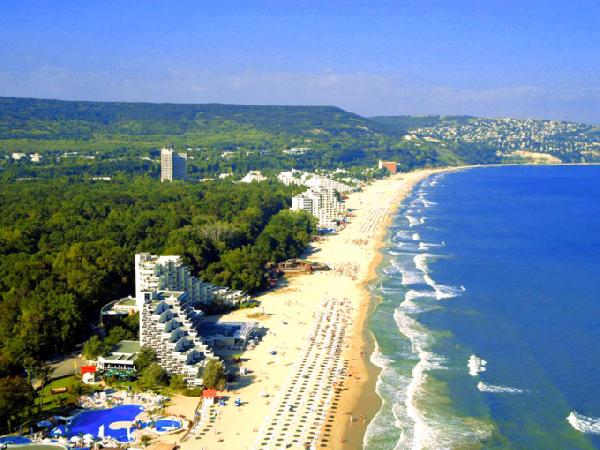Favorable breezes of Bulgaria
Favorable breezes of Bulgaria
Bulgaria can rightly be called a country of mountains. The Stara Planina Ridge (Bulgarian name for the Balkans), 420 km long, divides the country almost in half. The massifs of the Rhodope, Rila and Perin mountains are located in the southern and southwestern parts of the country . Mountainous terrain makes up 28% of the area of the state.



The highest peak in Bulgaria - Musala has a height of 2925 m. The rest of the country is occupied by hills (41%) and steppe and wooded plains.
Forests in Bulgaria are found everywhere. In the mountains, at an altitude of more than 1000 m, coniferous vegetation prevails. Below this mark are broad-leaved trees. Real beauties - oak, hornbeam, beech - coexist with more modest ash, linden and hazel. The mountainous area, little suitable for cultivation, has sheltered many species of rare wild animals in its untouched forests.
The fauna of Bulgaria is represented by chamois and red deer, bears and wolves, jackals and badgers, vultures, pelicans, bearded eagles and many other animals and birds. About 50 species of amphibians and reptiles and 1100 species of butterflies - that's what else these parts can boast of. Flora includes 3200 plant species .

All areas and corners suitable for agriculture are cultivated. The natural vegetation cover remained in the valleys of the Ropotamo and Kamchia rivers, on the banks and islands of the Danube, and, as mentioned above, in the mountainous regions.
There are nature protection zones in the country, occupying 498,000 hectares. Many of them are open to visitors.
The climate of Bulgaria is not uniform. If the north of the country belongs to the temperate continental climatic zone, then the climate in the Thracian Plain is rather steppe, and a climatic zone resembling the Mediterranean has formed near the Black Sea. In July and August the weather is very favorable: +22–25°С. On the sea coast, intense heat is excluded. The sea breeze makes the nights cool. Rains here are not uncommon, especially in the mountains. The rainiest month is June, the driest month is September.
In winter, the average temperature rarely drops below 5°C, and in the south, the temperatures do not cross the zero mark, remaining positive. In Thrace, which Stara Planina closes from the fierce northern winds, the climate is formed by the warm Mediterranean Sea, and therefore the land is generous and fertile.
Bulgaria is a wonderful place for both recreation and excursions.
<<Bus tours...>>

 Helpful information
Helpful information

